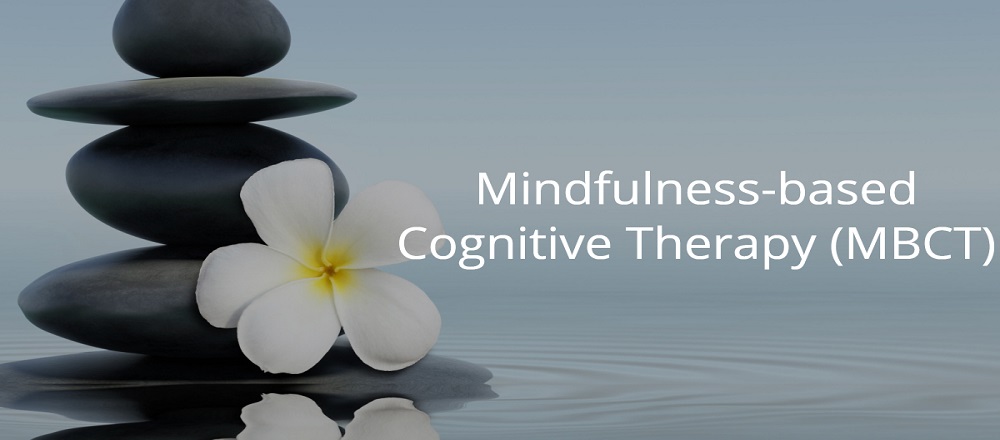What is mindfulness-based cognitive behavior therapy?
Mindfulness-based cognitive treatment includes cognitive therapy, meditation, and the cultivation of “mindfulness,” a present-focused, nonjudgmental attitude (MBCT).
To further cognitive therapy, therapists John Teasdale, Mark Williams, and Zindel Segal developed the MBCT. They thought that combining cognitive therapy with the Jon Kabat-Zinn-developed mindfulness-based stress reduction (MBSR) method would increase the likelihood that therapy would be effective.
Techniques of Mindfulness-based cognitive therapy
Mindfulness-based cognitive therapy builds on the ideas of cognitive therapy by teaching individuals to intentionally pay attention to their thoughts and feelings without casting judgment on them. Many mindfulness techniques and activities are employed as part of MBCT. These are a handful of them:
Self-directed or guided meditation can help a person become more conscious of their body, thoughts, and breathing.
Exercise for the body scan: Lying down while paying special attention to different body areas a person usually begins from the bottom of their body and works their way up
Increased present-moment awareness is one of the mindfulness techniques. Individuals can perform these exercises when they are meditating, but they can also include them in their normal activities.
Stretching with mindfulness: Stretching with mindfulness helps you become more conscious of your body and thoughts.
Yoga: The MBCT may encourage participants to perform particular yoga poses that encourage conscious body stretching.
The “three-minute breathing space technique” can be taught to people; it consists of three steps that last one minute each.
- Watching your experiences (How are you doing now?
- Breathing with attention
- Concentrating on your physical body and its feelings
Other MBCT techniques include walking and sitting meditations, sitting with ideas, and sitting with noises.
Uses of Mindfulness-based cognitive therapy (MBCT)
Research suggests that those who have experienced multiple episodes of depression may benefit from MBCT. While being first developed to treat depression, studies have shown that it is also beneficial for the following reasons:
- Anxiety conditions
- Bipolar illness
- Depression triggered by physical ailments
- Low spirits Unhappy
- Avoiding a relapse into depression
- Therapy-unresponsive depression
Benefits of Mindfulness-based cognitive therapy (MBCT)
The fundamental concept of cognitive therapy is that thoughts come before moods and that false self-beliefs lead to negative feelings like sadness. MBCT employs cognitive therapy approaches to help you recognize and reevaluate your negative thought patterns and replace them with more realistically hopeful ones.
By using this technique, people are able to consider their thoughts without worrying about the past or the future. The MBCT program helps you become more mentally clear and equips you with the skills you need to more easily let go of negative ideas rather than allow them to feed your hopelessness. Similar to cognitive therapy, MBCT is predicated on the notion that people with histories of depression are more likely to revert to the automatic cognitive processes that in the past have triggered depressive episodes when they are stressed.
The aggregate of mindfulness and cognitive remedy is what makes MBCT so effective. While mindfulness helps you notice and name your feelings. Cognitive therapy trains you to stop automatic thought patterns and cope with emotions in a healthy way.
Effectiveness of MBCT
The major goal of MBCT is to show people with chronic depression how to avoid relapses by avoiding the automatic thought patterns that aggravate and sustain depression. A study published in The Lancet found that MBCT was equally effective as a maintenance antidepressant medication at preventing the recurrence of depression. For those who experience recurrent depression, MBCT has been shown to lower the risk of relapse by an average of over 50%, regardless of a person’s sex, age, education level, or marital status.
Also, studies have demonstrated that MBCT can lessen the intensity of depressive symptoms and assist in lowering cravings for addictive substances. Also, studies suggest that MBCT may be a safe and efficient way to treat patients who are depressed right now.
Something to Think About
There is still more research to be done on MCBT’s efficacy for active or severe depression. It’s critical to go over your symptoms with your doctor in order to determine if this course of action is appropriate for you. Despite the fact that the MBCT’s classroom or group component is essential. A sizable portion of the work is done outside of class. Listening to guided meditations that have been recorded and attempting to cultivate mindfulness every day are two of the homework tasks.
Making your bed, brushing your teeth, having a shower, cleaning the dishes, or exercising could all be made more mindful by implementing MBCT practices like Choosing to follow what works over what is second-
- Questioning oneself
- Focusing on the here and now without getting sidetracked by other ideas or events
- Participating without feeling ashamed
- The eager attention of the entirety taking place around you
- Assuming a neutral stance
While mindfulness practices have gained popularity for their ability to improve mental wellness. Even mental health professionals who are not officially trained in MBCT may incorporate some of them into their therapy sessions. To find the best mental health professionals online, consider visiting TalktoAngel. This “Online counsellor” or “Online counselling” search engine can help you get the help you need.





